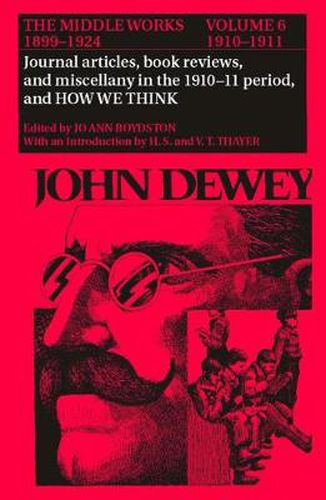Readings Newsletter
Become a Readings Member to make your shopping experience even easier.
Sign in or sign up for free!
You’re not far away from qualifying for FREE standard shipping within Australia
You’ve qualified for FREE standard shipping within Australia
The cart is loading…






William James, remarking in 1909on the differences among the three leading spokesmen for pragmatism–himself, F. C. S. Schiller, and John Dewey–said that Schiller’s views were essential ly psychological, his own, epistemo logical, whereas Dewey’s panorama is the widest of the three.
The two main subjects of Dewey’s essays at this time are also two of the most fundamental and persistent philo sophical questions: the nature of knowl edge and the meaning of truth. Dewey’s distinctive analysis is concentrated chiefly in seven essays, in a long, sig nificant, and previously almost un known work entitled The Problem of Truth, and in his book How We Think. As a whole, the 1910-11writings il lustrate especially well that which the Thayers identify in their Introduction as Dewey’s deepening concentration on questions of logic and epistemology as contrasted with the more pronounced psychological and pedagogical treat ment in earlier writings.
$9.00 standard shipping within Australia
FREE standard shipping within Australia for orders over $100.00
Express & International shipping calculated at checkout
William James, remarking in 1909on the differences among the three leading spokesmen for pragmatism–himself, F. C. S. Schiller, and John Dewey–said that Schiller’s views were essential ly psychological, his own, epistemo logical, whereas Dewey’s panorama is the widest of the three.
The two main subjects of Dewey’s essays at this time are also two of the most fundamental and persistent philo sophical questions: the nature of knowl edge and the meaning of truth. Dewey’s distinctive analysis is concentrated chiefly in seven essays, in a long, sig nificant, and previously almost un known work entitled The Problem of Truth, and in his book How We Think. As a whole, the 1910-11writings il lustrate especially well that which the Thayers identify in their Introduction as Dewey’s deepening concentration on questions of logic and epistemology as contrasted with the more pronounced psychological and pedagogical treat ment in earlier writings.